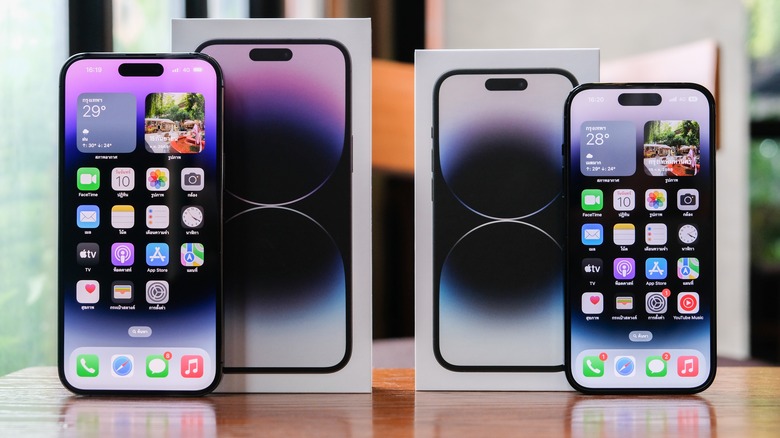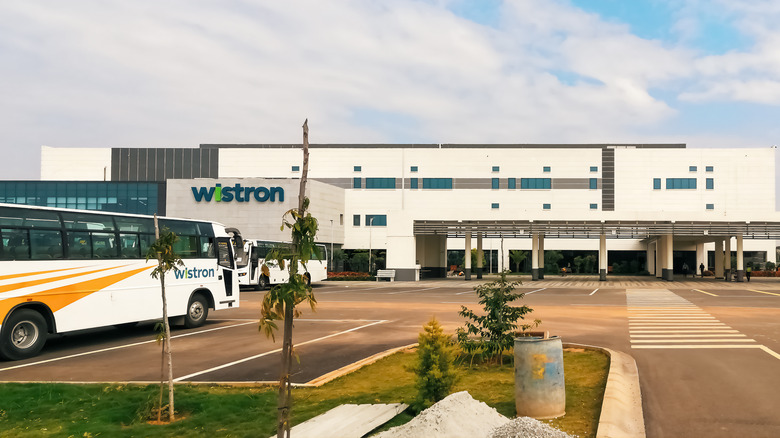BestBuy Confirms Apple's Pro iPhones In Short Supply For BlackFriday Weekend
It's been a little over two months since Apple introduced the iPhone 14 lineup comprising the iPhone 14, iPhone 14 Plus, iPhone 14 Pro, and the iPhone 14 Pro Max. In case you didn't notice, a significant change to Apple's 2022 iPhone lineup was the cancellation of the iPhone Mini series in favor of a new "Plus" model. This resulted in the birth of the iPhone 14 Plus — a mid-tier iPhone sandwiched between the "vanilla" iPhone 14 — and the pricier iPhone 14 Pro models.
While Apple hasn't revealed shipment figures for individual iPhone 14 models, industry analysts indicate that the iPhone 14 Plus hasn't exactly set the sales charts on fire. Instead, a large chunk of iPhone sales continue to be driven by the company's entry-level iPhone 14 model. Those seeking a more premium iPhone experience are choosing to bypass the Plus model entirely in favor of the iPhone 14 Pro and the iPhone 14 Pro Max — both of which are also selling in significant numbers.
In fact, reports claim that the demand for the iPhone 14 Pro has far exceeded Apple's expectations (Via 9To5Mac). While this is excellent news for any smartphone brand, it is becoming apparent that this surge in demand for the Pro models has led to a supply crunch. Making things worse for Apple, a fresh wave of Covid-19 infections in China and the resultant lockdowns have further strained the company's stressed supply chain.
In a recent Reuters report, Best Buy CEO Corie Barry has claimed that Apple's supply crunch will mean that millions of prospective iPhone 14 Pro customers will find it more difficult to get their phones during the ongoing holiday season sales.
China's Covid-19 lockdowns to blame
In her interaction with Reuters, Barry also estimated that the sales of the iPhone 14 during the 2022 Holiday season could fall by 10% compared to last year. The Reuters report also mentions Dan Ives — an analyst at Wedbush — who estimated that Apple will sell approximately 8 million iPhones during the BlackFriday sales weekend. While this is an impressive number by any stretch of the imagination, it pales in comparison to last year's figure of more than 10 million units.
Meanwhile, the statement from Barry didn't exactly come as a surprise to many, given that Apple had already indicated a supply crunch via an official press release earlier in November. Then, Apple confirmed that production at the world's largest iPhone factory in Zhengzhou, China, was heavily affected by COVID-19-induced lockdowns.
The latest crunch demonstrates how overly dependent Apple is on a single production facility for its premium phones. The company is working on a long-term solution, though. Apple and its manufacturing partners (including Foxconn, Pegatron, and Wistron) are increasingly looking at India as an alternative manufacturing hub. In fact, Apple already operates multiple production facilities in India — most of which make lower-priced iPhones. However, Apple has indicated that it wants India to make 25% of all iPhones by 2025.

